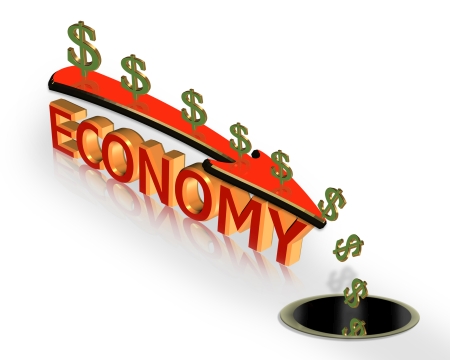The Fed is looking at one more interest rate hike this year and three in 2019…or so they said.
But investors aren’t buying it.
They don’t think the Fed will continue on their rate hike path.
This from CNBC:
‘The fear of the Fed is fading.
‘As the 10-week stock market correction deepened, fears of slowing growth escalated and expectations for Fed rate hikes have fallen. While stocks weakened, investors jumped into bonds, sending yields lower and igniting worries about a looming recession.
‘Odds are pretty low in the futures market that the Fed would raise interest rates more than one more time, though traders still expect the Fed to hike the fed funds rate by a quarter point next week.’
Investors think the Fed will be taking a break.
While employment is close to full, inflation — which would cause higher rates — isn’t picking up.
But most likely, the reason they don’t believe it is because of something US Federal Reserve Chair Jay Powell said.
Back in October, Powell said the Fed was a ‘long way’ from its neutral rate, which implied that more rate hikes were coming.
Then a couple weeks ago he said the rate was ‘just below’ its neutral rate. That is, he hinted that the Fed may not be raising rates as quickly as initially expected.
And, just a few days ago, there were reports that the Fed may take a ‘wait and see’ approach after their probable rate hike in December.
All these contradictory remarks could mean the Fed is starting to waiver.
The truth is that nobody really knows what will happen next, and the Fed is just making it up as they go.
The other big worry for the markets is the trade war. It looked like there was some progress in Argentina after both parties reached a truce during a dinner, but the rally didn’t last long.
The US believes that China has affected US manufacturing and is a threat to the United States. They don´t only see this as an economic issue, but as a national security issue.
That’s why we don’t think the conflict between China and the US is over by a long shot. We see it escalating, not deflating.
Recession in 2019?
The Fed needs to increase rates for the next recession…but they could be running out of time.
Talks of a recession next year are increasing as global growth slows and the markets are hitting more turmoil. JP Morgan sees a 35% chance of an early recession next year, up from 16% in March. According to a recent survey by Duke, almost half of the chief financial officers at companies expect a recession by the end of 2019.
The truth is that 2018 hasn’t panned out anything like 2017. Any small piece of news is spooking stock markets.
This is quite a change from last year, when investors where fearless and cheered the market on any chance they got. There wasn’t much that shook the markets back then.
As you can see in the graph below, volatility remained quite low all through 2017. In fact, investors were even betting that volatility would remain low.
|
Source: Yahoo Finance |
2018 has been a much different scenario.
This year, volatility has spiked with a higher average.
Asset classes haven’t performed as well either this year.
Stocks… oil…even cryptos are all falling. [openx slug=inpost]
According to Deutsche Bank, courtesy of The Wall Street Journal, 90% of the 70 classes they track are all in the negative for the year. As you can see below, the last year that came close to this was 1920, when 84% of the 37 asset classes tracked were negative.
Now noticed the figure from 2017…only 1% of assets finished the year in the negative.
|
Source: Wall Street Journal |
The US Fed has been increasing rates while starting quantitative tightening (QT).
To stimulate the economy after the 2008 crisis, the fed lowered interest rates and purchases assets pumped US$3 trillion into the economy by increasing their balance sheet, something referred to as quantitative easing (QE).
This created an asset boom, like in stocks and property.
Now the Fed is reversing this.
They are increasing interest rates and reducing their balance sheet to prepare for the next recession.
If their stimulus made asset prices boom for years, what do you think will happen when they take that away?
And, as you can see below, they have only just started decreasing their balance sheet. There is still a long way to go…
|
Source: Federal Reserve |
Investors are struggling to find places where to put their money…and fear is starting to creep in. That nudging feeling that things aren’t quite right is spreading.
Fear of a trade war, fear that interest rates are increasing, fear of Brexit, French protests and fear of a repeat of 2008.
At the end of the day, the market is all about supply and demand.
And when people are scared, they stop buying.
Best,
Selva Freigedo
